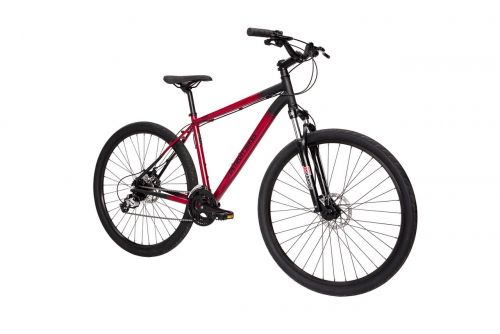DETROIT (BRAIN) — U.S. bike manufacturer Detroit Bikes, which sells bikes that are made with U.S.-sourced chromoly frames from its factory, is being approached to handle bike assembly for other suppliers, something company president Zak Pashak says is due at least partially to the tariffs on e-bikes and anticipation of proposed tariffs on complete bikes and parts.
"We are starting to field that from e-bike producers because of the e-bike tariff that went into place," Pashak told BRAIN. "I think we will see (assembly) increase eventually.
"We have been approached by other companies about assembly work already and I think it is in anticipation of tariffs. We're doing three to four contracts for different companies. It is starting to trickle in and we're going to see a lot more of it over the next couple of years, I think," Pashak added.
Pashak began making bikes in 2013 out of a 50,000-square-foot factory sourcing U.S. chromoly steel, and aimed his products for specialty dealers. But despite efforts to gain traction at IBDs, he was disappointed at the reception at shops. More recently he has added Asian-sourced bikes, which he assembles in Detroit and are offered at lower price points.
He's also started consumer-direct sales and launched his Assembly line of bikes, which are easy to unpack and adjust and come with tools and a floor pump.
"It's part of us going more direct to consumer, but it's primarily about a drop in pricing. When we started marketing ourselves to the consumer, a lot of our customers especially when shopping online, they expect bikes to be pretty cheap or more affordable. That customer we were reaching didn't want an American frame. They didn't care that the frame was made out of chromoly. To some customers a bike is a commodity, a bike is a bike," Pashak said.
"We realized we couldn't continue to force all of our customers to buy expensive American-made chromoly offerings. We split our line into two tiers. We have Assembly bikes where we do wheel building and bike assembly and packaging in Detroit. That's our entry level. Then we have our U.S.-made chromoly bikes. They will have an upgraded component group that matches the chromoly frame. That will raise prices on U.S.-made stuff a bit. It will be a pretty premium offering."
Pashak said he's generally brought down prices on bikes to be more in line with competitors.
Pashak said unless the administration decides not to implement the proposed tariffs on Chinese bike parts and components, his growth in assembly work is limited. The only savings for suppliers who onshore assembly would be on importing a complete bike.
"We need to see a slightly different tariff structure," he said. "That could be really helpful for us if they didn't have the same tariff on parts. But when you have tariff on bikes and parts, it's a wash."
As for his cost for U.S. steel, Pashak said he hasn't seen price increases as a result of tariffs implemented earlier this year on imported steel. He currently sources his chromoly steel from Plymouth Tube. "It's really expensive, and the main application for it is race cars.
"I haven't seen any huge change in pricing for my U.S. steel. They were already charging a ton for the chromoly I'm buying," he added.
For Pashak, U.S. assembly makes sense and he said he's able to make his Chinese-made but U.S.-assembled bikes competitive with similar products that are 100 percent made in China. His Detroit factory has capacity to assemble 800 bikes per day, and Pashak said he's got plenty of capacity to take on more contract assembly work, and he's more aggressively seeking that business.
"There is a lot of potential for onshoring U.S. jobs in terms of bicycle assembly," he said. "Final assembly is a whole lot different than manufacturing. You shouldn't expect a significant higher price for something assembled here. It should make more sense to assemble in the U.S."


